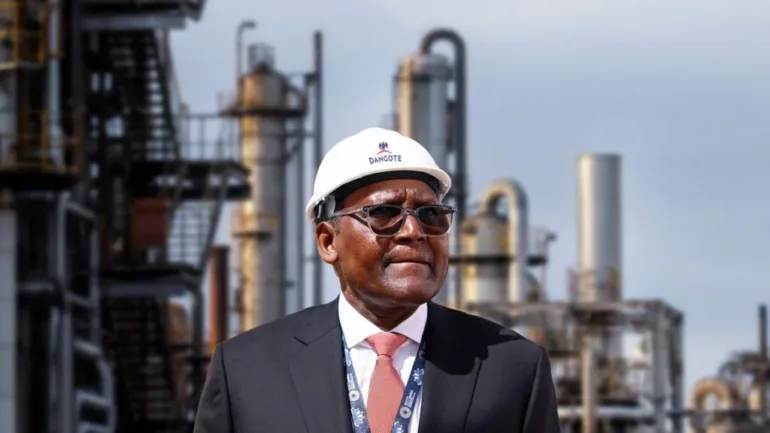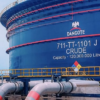For the second time in April, Dangote Petroleum Refinery and Petrochemicals has adjusted its ex-depot (gantry) loading cost for petrol, lowering the price to ₦835 per litre.
The $20bn Lagos-based refinery announced the price reduction to its marketers and customers on Wednesday. An official at the refinery confirmed the price reduction from ₦867 to ₦835 per litre to The Telegraph. The refinery also indicated that a formal statement would be released soon.
Further checks on petroleumprice.ng corroborated the price change, confirming that the private refinery had indeed lowered its gantry price to ₦835 on Wednesday afternoon.
Filling stations, including MRS Oil & Gas, Ardova Plc, Heyden, and others with special agreements with Dangote Refinery, are expected to adjust their pump prices accordingly, with some likely reducing prices to below ₦900 to reflect the decrease in the ex-depot price.
This reduction follows a meeting between Dangote Refinery representatives and Nigeria’s Finance Minister, Wale Edun, held last week. The government reiterated that the “naira-for-crude” initiative remains in effect, emphasizing that it is not a temporary measure but a crucial policy aimed at supporting sustainable local refining. The government also affirmed its commitment to this initiative, overriding previous decisions under the leadership of former NNPCL boss, Mele Kyari.
For years, Nigeria—Africa’s most populous nation—has grappled with persistent energy challenges, compounded by unreliable power supply, which has severely hampered productivity. State-owned refineries had been non-operational for decades until recently. Prior to the start of production at the Dangote Refinery, the country relied heavily on imported refined petroleum products, with the state-run NNPC serving as the primary importer.
Since the removal of the fuel subsidy in May 2023 by President Bola Tinubu, petrol prices have skyrocketed, increasing fivefold from around ₦200 per litre to approximately ₦1000 per litre. This surge in fuel prices has compounded the hardships faced by citizens, who depend on petrol not only for their vehicles but also to power generators, due to the country’s long-standing electricity supply issues.


